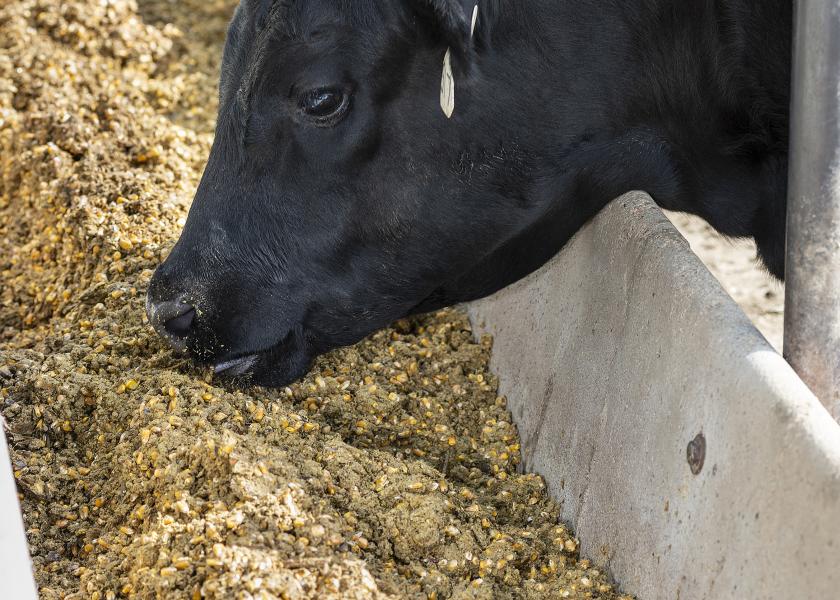Research Identifies Potential Sustainability Benefits for Beef

Syngenta Seeds, in partnership with the University of Arkansas Resiliency Center (UARC), unveiled newly published research highlighting the potential for beef producers to reduce their environmental footprint by using Enogen® corn for feed from Syngenta Seeds. The life cycle assessment is based on studies conducted at the University of Nebraska and Kansas State University, which identified feed efficiency gains of around 5% which can lead to reduced emissions and less consumption of natural resources – while still helping farmers maximize their operations.
Agriculture alone is responsible for 12% of global greenhouse gas emissions, and the whole food value chain accounts for 25% of emissions. Syngenta Seeds, as part of the Syngenta Group, is committed to helping the agriculture industry reduce its carbon footprint and play a role in meeting the world’s net zero target. Syngenta Group launched its new Good Growth Plan in June 2020, announcing new targets and investment objectives as part of a $2 billion commitment to help farmers address the effects of climate change and improve long-term agricultural sustainability.
Enogen corn for feed, fed to cattle as grain or silage, helps convert starch to sugar more efficiently, resulting in more readily available energy for livestock. The purpose of the UARC study was to evaluate the performance of Enogen corn for feed – compared to conventional feed corn – when used as an ingredient in their operations. The life cycle assessment was conducted by Drs. Greg Thoma, Marty Matlock and Martin Christy at the University of Arkansas Resiliency Center.
“To your average person, small percentages like 5 percent might not seem significant when feeding cattle,” said Marty Matlock, Ph.D., Executive Director of UARC. “But improving sustainability indicators across a complex system like beef production with tens of millions of cattle starts with understanding where the impacts occur in the life cycle of the product. Technological innovations like Enogen corn from Syngenta Seeds have the potential to enhance sustainability of agricultural production, especially reducing greenhouse gas emissions.”
The UARC findings indicate that an improvement in feed efficiency – as demonstrated in University of Nebraska-Lincoln (UNL) feeding trials2 – results in approximately 6% improvement in the four key environmental performance metrics of beef production. The observed environmental performance improvement during the backgrounding phase – as seen in Kansas State University (KSU) trials2 – was in the 3.5-5% range, which suggests Enogen corn for feed is an important potential technology for mitigation of environmental impact in this phase of beef production, as well.
“We’re thrilled with this new data from the UARC study that supports earlier research showing clear environmental benefits when using Enogen corn for feed,” said Chris Cook, Head, Enogen at Syngenta Seeds. “Potential feed efficiency gains of around 5%2 are highly significant for beef and dairy producers when you consider there are nearly 100 million cattle in the U.S. alone. It helps maximize potential in their farm operations while also helping to deliver environmental benefits through reduction of greenhouse gas emissions and improvements in land, energy and water use efficiency.”
Potential environmental benefits
The UARC analysis showed that a 5% increase in feed efficiency in a beef backgrounding and feed yard operation could potentially yield the following savings3 per 1,000 head:
- Climate change: >162 k kg CO2e – Greenhouse gas emissions equivalent to removing 35 passenger cars from the road for one year
- Land use: 66 acres – The land use equivalent of 50 football fields for one year
- Water use: >6m gallons – Enough water to fill nine Olympic-size swimming pools
- Energy use: >269k kWh – The energy to power 22 average homes for one year
Enogen corn for feed technology represents a significant opportunity for the agricultural industry to take meaningful steps to reduce its overall impact on the environment. Syngenta Seeds is continuing to explore possibilities to bring Enogen technology to other countries around the world while continuously investing to accelerate innovation to support farmers with more sustainable agriculture.
Enogen corn hybrids for feed offer proven genetics and strong agronomic characteristics in the field and may also improve the digestibility of starch in cattle feed. The potential for feed efficiency gains in beef cattle has been seen across feedstuff types, including dry-rolled corn in the UNL trials – and whole and flaked corn, as well as corn silage, at KSU.







